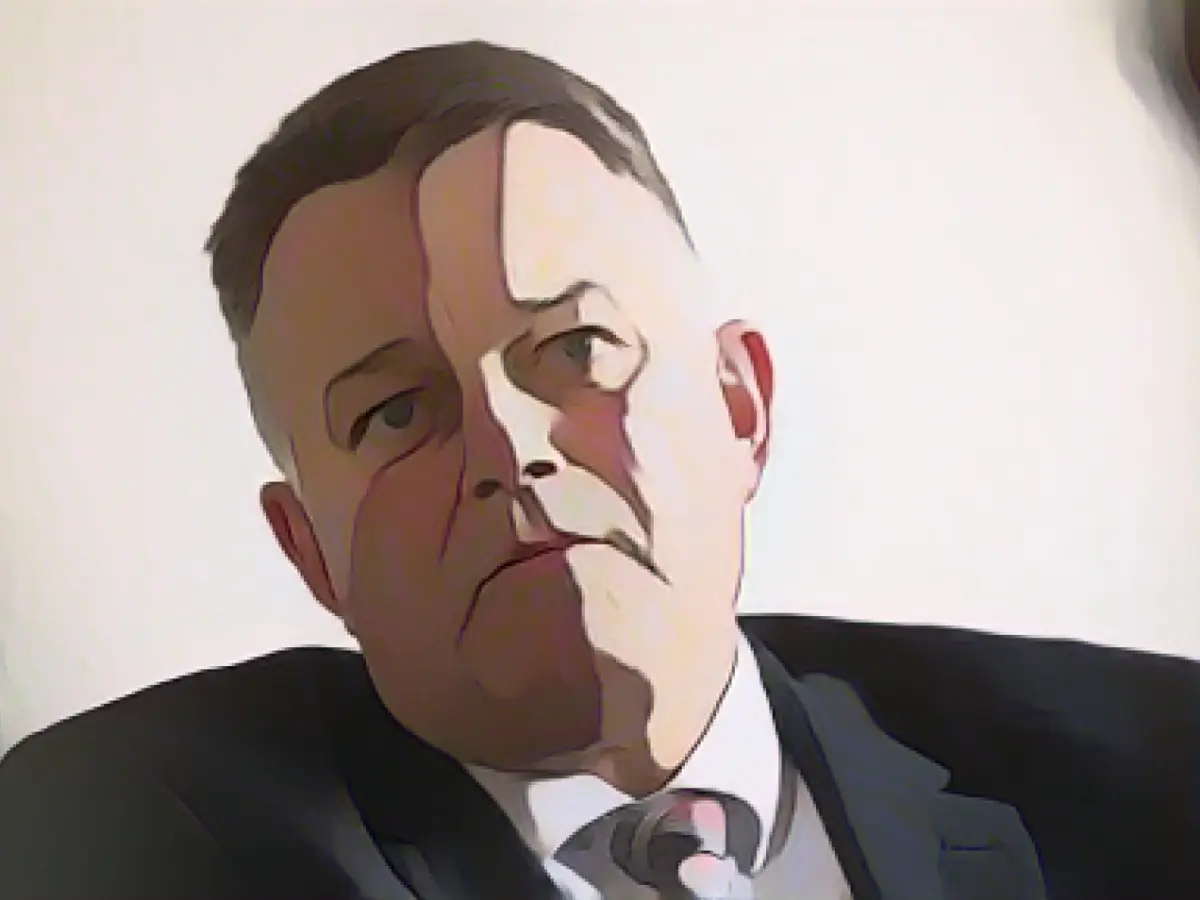Parliament Bites Back: CDU Leader Slams Raab for Deception Allegations
The Rhineland-Palatinate parliament saw tempers flare as CDU group leader Gordon Schnieder accused State Secretary Heike Raab (SPD) of deceiving not just the parliament, but also the press and broadcasting committees. Schnieder, known for his straight-talking style, didn't mince words, labeling Raab's actions as neither a coincidence nor a mistake, but unacceptable. He went on to claim that Raab's letter criticizing a SWR report was part of a "large-scale intimidation plan."
Unperturbed by the accusations, Raab seemed intent on misleading the media committee with her statements. Despite her best efforts, the inconsistencies in her narrative persisted, and she failed to refute the allegations against her personally. Schnieder, in his role as CDU leader, urged Minister President Malu Dreyer (SPD) to dismiss Raab as the state's representative to the federal government and for Europe and the media. In Schnieder's words, the "Raab case" was a "synonym for maintaining power at any price, for red felt, and party-political nepotism."
The Special Session, initiated by the opposition factions of CDU and Free Voters, was a direct response to Raab's letter to SWR state broadcasting director Ulla Fiebig concerning an advertisement on SWR television. The opposition viewed this letter as an inadmissible attempt to influence reporting in favor of a party colleague and as a threat against the broadcaster, given the letter's origin from the state government.
In an attempt to dampen the situation, Raab admitted mistakes and stepped down from SWR committees last week. However, her appearance at the Special Session did little to quell the growing discontent within the opposition ranks.
Germany's Powder Keg Politics
Politics in Germany has been simmering, with a growing rift between the CDU/CSU and the SPD. The SPD has voiced concerns about the CDU's alleged collusion with the far-right AfD party, fearing it would erode the "democratic firewall" and foster radicalization.
The CDU's controversial Five-Point Plan, which found significant support from the AfD in its bid to curb immigration, has further fueled tensions. This move has been met with criticism from opposition parties, including the SPD, Greens, and Left Party, who accused the CDU of threatening democratic values.
Present political polls suggest a fascinating four-way race between the SPD, CDU/CSU, Greens, and AfD, all expected to surpass the 5% electoral threshold. However, the political climate remains tense, with each party vying for support and leveling harsh criticisms at their rivals.
Insights
The conflict between the CDU and SPD over allegations of deception and collusion with the far-right AfD is a complex issue with deep roots. The shift in the CDU's stance on migration towards more conservative policies and increasing competition in German politics has contributed to this rift.
The CDU's recent shift has been seen by some as a strategic move to attract voters concerned about security and immigration. However, this policy change has also led to accusations that the party is adopting policies too similar to the AfD, potentially eroding trust in its commitment to traditional values.
The SPD's concerns about the CDU's alleged collaboration with the far-right party are rooted in the AfD's nationalist and anti-immigrant rhetoric. The SPD has historically been more critical of the AfD, which puts it at odds with the CDU's new conservative stance.
The public perception of the CDU's stance on immigration has been mixed, with some voters viewing the party's new emphasis on security as a positive change, while others see it as pandering to far-right sentiments.
The current political landscape in Germany is a powder keg, with each party trying to win over voters and engaging in a series of criticisms towards their rivals. This complex dynamic underscores the challenges facing German coalition politics and the evolving nature of political discourse in the country.








